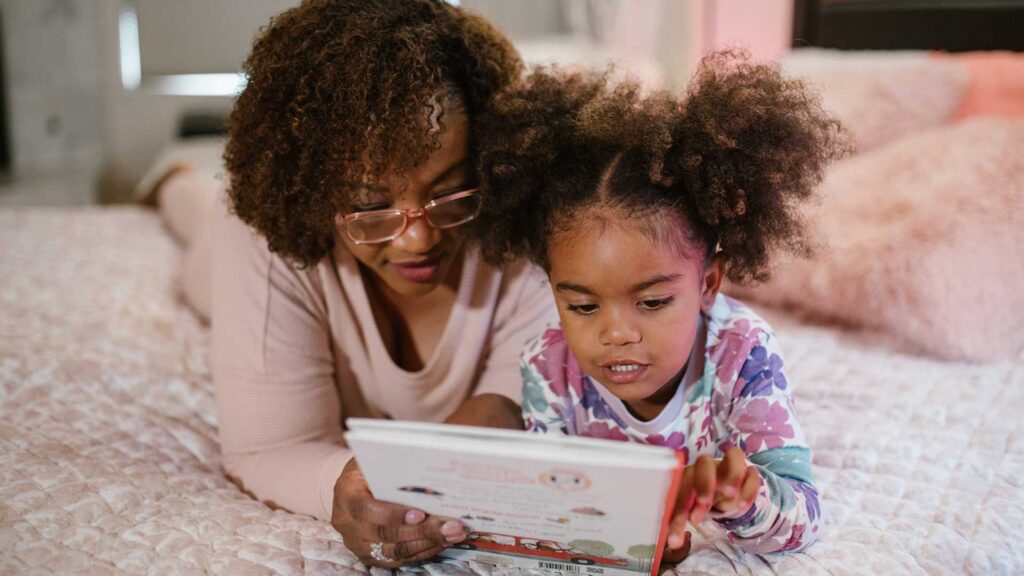
If you asked parents one thing they wished was easier about having young kids, many would say something about improving their child’s sleep. Kids are funny; they can be totally amped to bike to the playground, then too fatigued to pedal home, followed by not being tired enough to fall asleep at bedtime — all in a few hours.
Challenges like these understandably have many parents seeking sleep remedies, such as melatonin for kids. While supplemental melatonin isn’t a new product, its use among children has skyrocketed over the past few years. Studies show that sales of melatonin for children more than doubled between 2017 and 2020. (1)
Of course, just because something is trending doesn’t always mean it’s a good idea for everyone. Here’s what you need to know about melatonin for kids, including who may benefit, recommended dosages, safety considerations, and potential side effects.
Note: The content on Sleepopolis is meant to be informative in nature, but it shouldn’t be taken as medical advice, and it shouldn’t take the place of medical advice and supervision from a trained professional. If you feel you or your child may be suffering from any sleep disorder or medical condition, please see your healthcare provider immediately. Additionally, restrictions and regulations on supplements may vary by location. If you ever have any questions or concerns about a product you’re using, contact your doctor.
Long Story Short
- Melatonin is a naturally occurring hormone produced by your brain that regulates your sleep-wake cycle. It can also be artificial and sold in supplemental form.
- Melatonin shouldn’t be given to children without first speaking with their pediatrician and targeting other behavioral interventions to help improve sleep.
- While it’s widely available, melatonin isn’t regulated by the FDA or approved for use in children under 18. It shouldn’t be used among children without first speaking with their pediatrician.
What Is Melatonin?
Though most people may picture a little pill when they think of melatonin, it isn’t just an artificial supplement. It’s a naturally occurring hormone that plays a crucial role in regulating your natural sleep-wake cycle or circadian rhythm.
Melatonin levels typically rise in the evening as darkness falls, signaling to your body that it’s time to prepare for sleep. Then, they drop throughout the night as you sleep as part of the normal sleep-wake cycle.
Beyond regulating your wake and sleep cycle, this hormone helps synchronize various biological functions with the day-night cycle, such as mood, immune function, and antioxidant activity. (2) (3)
The amount of melatonin your brain produces typically decreases with age. The decline is thought to contribute to age-related changes in sleep patterns and the prevalence of sleep disorders among the elderly. (4) When it comes to kids, many parents assume if melatonin is the sleep regulator, supplementing with a little more can help address sleep problems. But it might not be that simple.
Is Melatonin Safe for Kids?
It makes sense that parents would think boosting melatonin levels could help kids struggling to fall asleep come bedtime. After all, many of us have used melatonin when recovering from jet lag, time changes, or other things that disrupt our normal circadian rhythm. But just because it can help adults, does that mean melatonin for kids is safe?
Many people assume so, given how accessible it is. However, pediatrician Veena Mathad, MD, tells Sleepopolis that melatonin has not been well-studied in the pediatric community, and it’s not often recommended for most children.
Furthermore, the American Academy of Sleep Medicine recently issued a health advisory with warnings about melatonin use among children. Still, many parents give their children supplemental melatonin and are unaware of the potential risks.
It’s important to be aware that pediatric sleep experts recommend caution. Certified Pediatric Sleep Consultant Charlsie Myers, PhD, BCBA tells Sleepopolis that most kids don’t need melatonin — they need more targeted behavioral interventions to address underlying issues and improvements to their sleep routines. For example, regular sleep hygiene practices, a consistent bedtime routine, and a healthy sleep environment should be prioritized.
Mathad agrees, saying, “If a parent feels that their child is not sleeping well, then we need to look for a cause for their sleep issues. It is important to have a good sleep routine, something calming, and no screens in the bedrooms. Regular exercise and diets free of processed foods and dyes can also help.”
The Children Who May Benefit From Melatonin
Although most kids don’t need melatonin, supplements may be beneficial in specific scenarios under the guidance and supervision of a healthcare professional.
Mathad says, “I only recommend melatonin for children who have neurological conditions or autism. These children’s brains are structured differently than a regular child and [supplemental melatonin] can benefit their sleep.” (5)
Experts emphasize that parents should not self-prescribe melatonin for their kids even in these instances. It’s recommended to always speak with your child’s pediatrician if you’re concerned about getting their sleep routine back on track.
Side Effects of Melatonin for Kids
As with any supplement, melatonin comes with its own list of potential side effects. These can vary depending on the child, brands, and products involved.
Mathad notes that some more common side effects of melatonin can include dizziness, headaches, and mood changes. Myers also says some kids experience increased bedwetting, nightmares, and morning grogginess, which disappear with discontinuation if they’re related to melatonin use. (6)
Long-term effects and the impact of prolonged melatonin use in children are still areas of ongoing research. In other words, while non-serious side effects are fairly common, the potential impacts of melatonin use in childhood later in life are unknown. (7)
There is some speculation that overusing or misusing melatonin can disrupt the body’s natural ability to regulate the hormone, possibly leading to dependency. Furthermore, some researchers have concerns that long-term melatonin use could delay sexual maturation by interrupting the natural decrease in nighttime melatonin levels that happen during puberty. However, much more research is needed to determine whether this is a valid concern. (8)
Finally, it’s important to remember that melatonin supplements are not regulated the same way as pharmaceuticals by the Food and Drug Administration. This leaves more room for problems with quality, safety, and purity. In fact, in a recent study involving 25 commercial melatonin supplements, the actual melatonin content ranged from 74-347 percent of the amount that was claimed. (1)
Look for melatonin supplements with a third-party certification seal when possible, indicating it has been independently tested. Examples include NSF International, U.S. Pharmacopeia (USP®), and Consumer Lab.
Melatonin Overdose
Melatonin usage among children has drastically increased, and so has the incidence of overdose. According to the U.S. Department of Health and Human Services, melatonin was the most frequently ingested substance among kids reported to national poison control centers in 2020. (9)
From 2012 to 2021, these reports increased by 530 percent. During this time, the majority of pediatric accidental melatonin ingestions occurred in the home, unintentionally, and among children under 5 years old. While more than 80 percent of cases were without symptoms, serious outcomes and two deaths were reported. (9)
This reiterates the importance of maintaining parental control over melatonin (and all supplements). Keep them out of your child’s reach and never allow them to self-dose. If your child gets a hold of melatonin or you’re afraid they took too much, call poison control right away.
Recommended Melatonin Dosage for Children
The recommended melatonin dosage for children can vary depending on factors like age, weight, and the specific sleep-related issue being addressed.
The American Academy of Pediatrics says many children respond well to a low dose of 0.5 to 1 mg of melatonin taken 30-90 minutes before bedtime. Furthermore, kids who benefit from melatonin generally don’t need more than 3 to 6 mg, and that may be considered on the higher side by many professionals. (10)
Though it can be tempting to solve your child’s sleeping woes with what appears to be a simple supplement, parents should avoid self-prescribing melatonin for their kids — or increasing their dosage — without first consulting a pediatrician. Healthcare professionals can assess your child’s sleep patterns, overall health, and any underlying issues that may contribute to sleep disturbances before recommending melatonin.
FAQs
Does melatonin delay puberty?
Some researchers have concerns that long-term melatonin use could delay sexual maturation by interrupting the natural decrease in nighttime melatonin levels that happens during puberty. However, much more research is needed to determine whether this is a valid concern. (8)
The Last Word From Sleepopolis
A growing number of parents are using melatonin for kids to improve sleep routines and restfulness. However, while supplemental melatonin may be used temporarily to help reset circadian rhythms for adults, there are concerns about it being used for children. Most children do not need melatonin, though it may be prescribed under specific scenarios by pediatricians.
The quality, purity, and safety of melatonin supplements can vary widely and long-term research on side effects is very limited among kids. Before adding melatonin, consult your child’s pediatrician and consider working with a sleep consultant to address underlying behavioral sleep issues.
Sources
- Hartstein LE, Garrison MM, Lewin D, Boergers J, LeBourgeois MK. Characteristics of Melatonin Use Among US Children and Adolescents. JAMA Pediatr. Published online November 13, 2023. doi:10.1001/jamapediatrics.2023.4749
- Bondy SC, Campbell A. Melatonin and Regulation of Immune Function: Impact on Numerous Diseases. Curr Aging Sci. 2020;13(2):92-101. doi:10.2174/1874609813666200711153223
- Tonon AC, Pilz LK, Markus RP, Hidalgo MP, Elisabetsky E. Melatonin and Depression: A Translational Perspective From Animal Models to Clinical Studies. Front Psychiatry. 2021;12:638981. Published 2021 Apr 8. doi:10.3389/fpsyt.2021.638981
- Cardinali DP, Brown GM, Pandi-Perumal SR. Melatonin’s Benefits and Risks as a Therapy for Sleep Disturbances in the Elderly: Current Insights. Nat Sci Sleep. 2022;14:1843-1855. Published 2022 Oct 14. doi:10.2147/NSS.S380465
- Parvataneni T, Srinivas S, Shah K, Patel RS. Perspective on Melatonin Use for Sleep Problems in Autism and Attention-Deficit Hyperactivity Disorder: A Systematic Review of Randomized Clinical Trials. Cureus. 2020;12(5):e8335. Published 2020 May 28. doi:10.7759/cureus.8335
- Esposito S, Laino D, D’Alonzo R, et al. Pediatric sleep disturbances and treatment with melatonin. J Transl Med. 2019;17(1):77. Published 2019 Mar 12. doi:10.1186/s12967-019-1835-1
- Händel MN, Andersen HK, Ussing A, et al. The short-term and long-term adverse effects of melatonin treatment in children and adolescents: a systematic review and GRADE assessment. EClinicalMedicine. 2023;61:102083. Published 2023 Jul 6. doi:10.1016/j.eclinm.2023.102083
- Boafo A, Greenham S, Alenezi S, et al. Could long-term administration of melatonin to prepubertal children affect timing of puberty? A clinician’s perspective. Nat Sci Sleep. 2019;11:1-10. Published 2019 Jan 31. doi:10.2147/NSS.S181365
- Lelak K, Vohra V, Neuman MI, Toce MS, Sethuraman U. Pediatric Melatonin Ingestions – United States, 2012-2021 [published correction appears in MMWR Morb Mortal Wkly Rep. 2022 Jul 08;71(27):885]. MMWR Morb Mortal Wkly Rep. 2022;71(22):725-729. Published 2022 Jun 3. doi:10.15585/mmwr.mm7122a1
- Esparham A. Melatonin for Kids: What Parents Should Know About This Sleep Aid. American Academy of Pediatrics. Updated 27 April 2023. Available from: https://www.healthychildren.org/English/healthy-living/sleep/Pages/Melatonin-and-Childrens-Sleep.aspx
Mathad, Veena. Personal interview. December 20, 2023.



























